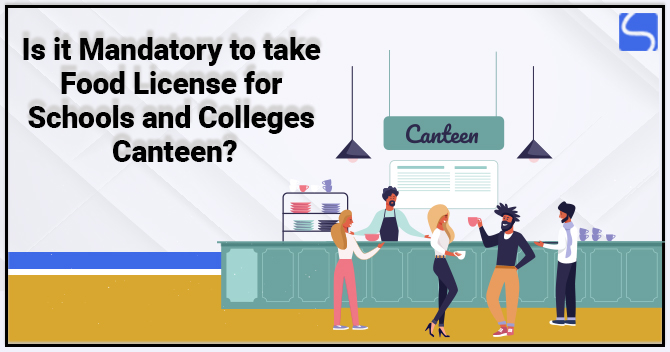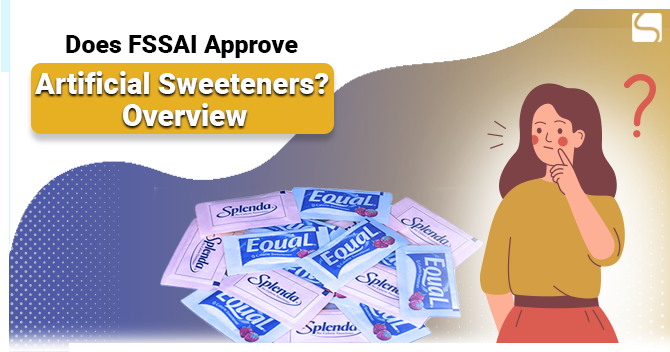FSSAI Food License Registration for Online Home Kitchen

Shivam Narwal | Updated: May 04, 2023 | Category: FSSAI
The government organisation in charge of supervising India’s food businesses and industry is the Food Safety and Standards Authority of India, or FSSAI. The Ministry of Health and Family Welfare[1] of the Indian government receives direct reports from this independent organisation. A single piece of legislation, the Food Safety and Standards Act, 2006 (FSS Act), which governs all facets of food regulation in India, is what gave rise to the Food Safety and Standards Authority of India (FSSAI). To stop food tampering and the dissemination of unsafe products, food items are put through rigorous testing. The lockdown brought about by the outbreak has given rise to a number of skilled home chefs and bakers. If you also operate a home-based food business in India, you need to be aware of and obtain an FSSAI Registration or License. In the absence of one, your company may be shut down by the FSSAI or you may be subject to a severe fine of up to Rs. 5 lakhs. Let’s learn everything there is to know about obtaining an FSSAI registration to sell handmade food in India.
Table of Contents
Meaning of FSSAI Registration
The Food Safety and Standards Authority of India (FSSAI) requires all food-related enterprises to be registered or Licensed before they can lawfully produce, prepare, store, distribute, or sell food. A Food Business Operator (FBO) may be required to register with the FSSAI, known as Basic FSSAI Registration, or to obtain a License from the organisation, known as FSSAI License, depending on the size and nature of operations. All food packaging bears a 14-digit registration or License number, which is exclusive to each food enterprise. The registration procedure is meant to give FBOs more accountability for maintaining the uniformity and safety of their food products. The procedure and requirements for getting a License or registration for a food business are governed by the Food Safety & Standards (Licencing and Registration of Food Business) Regulations, 2011.
Why You Need a Food License?
It is a requirement in India for anyone running a food business to register with the Food Safety and Standards Authority of India (FSSAI) or get a food License. Small enterprises must still register with the food authority but there is an exception for extremely small businesses. This approach assists both businesses and customers by guaranteeing the security and calibre of food goods.
The first benefit of getting an FSSAI License is that it encourages trade while calming public concerns about food safety. Customers are given trust by the establishment of a regulatory system that guarantees the safety of the food being supplied for consumption. In addition to preserving public health, this helps the food industry build its credibility and reputation.
Furthermore, FSSAI registration streamlines the procedure for businesses by removing the need for multiple approvals from different organisations. This simplification of rules promotes innovation and entrepreneurship in the food sector. It makes it easier to introduce new food innovations, products, and procedures while maintaining safety standards.
Without an FSSAI License, operating a food business can have serious implications. The costs associated with acquiring a permit are much higher than the penalties for non-compliance. Consequently, obtaining an FSSAI License is not only a necessity under the law but also a wise business move. It assists companies in avoiding legal issues and protects their reputation. In a broader sense it is essential that each operator of a food business in India to register with the FSSAI and receive a food License. By guaranteeing the safety of food items, it encourages innovation, builds trust, streamlines regulatory processes, and shields firms from harsh fines. It also promotes trade. Following these rules displays a dedication to offering consumers nutritious food that is safe and of the highest quality, which is essential for long-term success in the sector.
Documents required for FSSAI Registration for Home Kitchen
Here are the required documents for FSSAI Registration for home kitchen as listed below:
- Passport sized photograph: The authorised person’s passport-size photo must be included with the FSSAI License application. The image should have a neutral background, be clear, and be current.
- Address proof of authorized person: To prove who is qualified to use the home kitchen, you must offer a genuine address. This can be any official government document, such as an Aadhaar card, a voter identification card, a driver’s License, a passport, or another legal identity document with the authorised person’s address on it.
- Name and address of the home kitchen: Your home kitchen business’ name and address must be provided. All formal correspondence regarding your business as well as the issuance of the License will be conducted using this information.
- Declaration form: The FSSAI’s declaration form must be completed and submitted with the application. Using this form, you can declare the kind of food business you’re running, the owner’s information, and the food items you’re making or selling.
- Details on the type of business: You must provide information on the nature of your home kitchen business, including the kinds of foods you intend to sell or produce, the size of your firm, the number of employees, etc. Using this information, you can choose the type of FSSAI License you should apply for. You can choose from 3 types of food Licenses namely, Basic, State or Central License.
Procedure for FSSAI Registration for Online Home Kitchen
You will need to obtain an FSSAI License if you intend to run an online home kitchen in India. The process in detail for obtaining the FSSAI License for online home kitchens is as follows:
- Setting up a business plan: You must have a detailed business plan that includes information about your products, target market, and projected financials.
- Figuring out yearly turnover: Depending on the company’s yearly sales, the FSSAI offers various License classes. You must first determine your yearly turnover in order to select the appropriate License type.
- Filing the application with relevant documents: You must complete the FSSAI application form and provide the necessary documentation, including an address proof, a passport-sized photo, the name and address of your firm, and a declaration form.
- Paying the appropriate fee: The necessary License fee will need to be paid. Different fees apply depending on the License type and the company’s yearly sales.
- Submission of the application: Once completed and accompanied by the required documents, the application can be submitted to the FSSAI.
- Get updated on the application process: Ensure the accuracy of all the information you provide in your application. The FSSAI has the power to cancel your registration if there is any misleading information. You have 30 days to make the necessary adjustments and resend the updated form if the original one has to be changed.
- Monitor the approval process: The License may be approved by the FSSAI in 15 to 45 days. You must monitor the process and resolve any inconsistencies.
Conclusion
Operating a home kitchen or any type of food business in India requires having an FSSAI registration or License, which is both a legal necessity and an important first step. The Food Safety and Standards Authority of India (FSSAI) is crucial in assuring the nation’s food supply’s safety and quality. Businesses can build confidence and credibility with customers by registering with the FSSAI and getting a License, fostering trade and preserving public health. Documents like address verification, passport-sized photos, company information, and the FSSAI declaration form must be submitted as part of the FSSAI registration process.
Read our Article:FSSAI Licence: Understanding the Types and Significance













